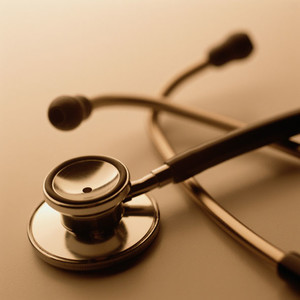Healthcare spending on prescription medications comprises 1.6% of gross domestic product (GDP) in the US and continues to rise. Brand-name prescription medications – both small-molecule and biological drugs – are the primary driver of this growth, increasing 15% in price in 2014 alone [1].
Paying physicians to prescribe generics and biosimilars in the US
Biosimilars/Research
|
Posted 27/03/2015
 2
Post your comment
2
Post your comment

Generics saved consumers and the US healthcare system US$217 billion in 2012 and have saved the US in excess of US$1.2 trillion between 2003 and 2012, according to a report by the Generic Pharmaceutical Association (GPhA) [2].
Strategies to increase prescribing of generics and biosimilars include traditional information supplying programmes such as formulary decision support and academic detailing, as well as financial incentives.
In the following series of four articles Sarpatwari and co-authors discuss the types of substitution possible with generics and biosimilars, strategies used to promote prescribing of generics, as well as their legal and ethical considerations, and how these issues might apply to biosimilars.
The authors conclude that both interventions can be safely, legally and ethically employed by private insurers and employers to encourage bioequivalent substitution of non-narrow therapeutic index (NTI) generic, but further safety and effectiveness data are needed to recommend substitution of bioequivalent NTI or interchangeable biosimilars substitution.
Conflict of interest
AS Kesselheim’s (ASK) work is supported by an Ignition Award from the Harvard Program in Therapeutic Science. The funders had no role in study design, data collection and analysis, decision to publish, or preparation of the manuscript. The authors of the research paper [1] declared that they have read the journal's policy and declare the conflicts that ASK is a member of the Editorial Board of PLOS Medicine.
Related articles
Substitution of generics in the US
Substitution of biosimilars in the US
Promoting generics prescribing in the US
Considerations when promoting generics prescribing in the US
References
1. Sarpatwari A, Choudhry NK, Avorn J, Kesselheim AS. Paying physicians to prescribe generic drugs and follow-on biologics in the United States. PLoS Med. 2015;12(3):e1001802.
2. GaBI Online - Generics and Biosimilars Initiative. Generics save US 1.2 trillion over last 10 years [www.gabionline.net]. Mol, Belgium: Pro Pharma Communications International; [cited 2015 Mar 27]. Available from: www.gabionline.net/Reports/Generics-save-US-1.2-trillion-over-last-10-years
Permission granted to reproduce for personal and non-commercial use only. All other reproduction, copy or reprinting of all or part of any ‘Content’ found on this website is strictly prohibited without the prior consent of the publisher. Contact the publisher to obtain permission before redistributing.
Copyright – Unless otherwise stated all contents of this website are © 2015 Pro Pharma Communications International. All Rights Reserved.
Posted 07/04/2015 by Justyna K, GaBI Online Editorial Office
Response to ‘Where are the 4 articles?’
Dear Mr Spiegel, Thank you for your query and interest in the GaBI article. Please be advised that the series of remaining four articles will be released in the coming weeks. Please look out for it and contact us if you cannot access the articles. Best Regards, Justyna
Posted 27/03/2015 by Andrew Spiegel
Where are the 4 articles?
Where are the 4 articles?
News
FDA approves Poherdy (first interchangeable pertuzumab) and Armlupeg (pegfilgrastim) biosimilars
EMA recommends approval for insulin glargine biosimilar Ondibta and denosumab biosimilar Osqay
General
Samsung Bioepis wins Pyzchiva case; Regeneron patent rulings threaten foreign biosimilars
Chinese biosimilars go global: growth, partnerships, and challenges
What is the future for the US biosimilar interchangeability designation

Biosimilars/Research Posted 05/06/2025
Biosimilar clinical efficacy studies: are they still necessary?

Biosimilars/Research Posted 27/05/2025
The best selling biotechnology drugs of 2008: the next biosimilars targets








Post your comment